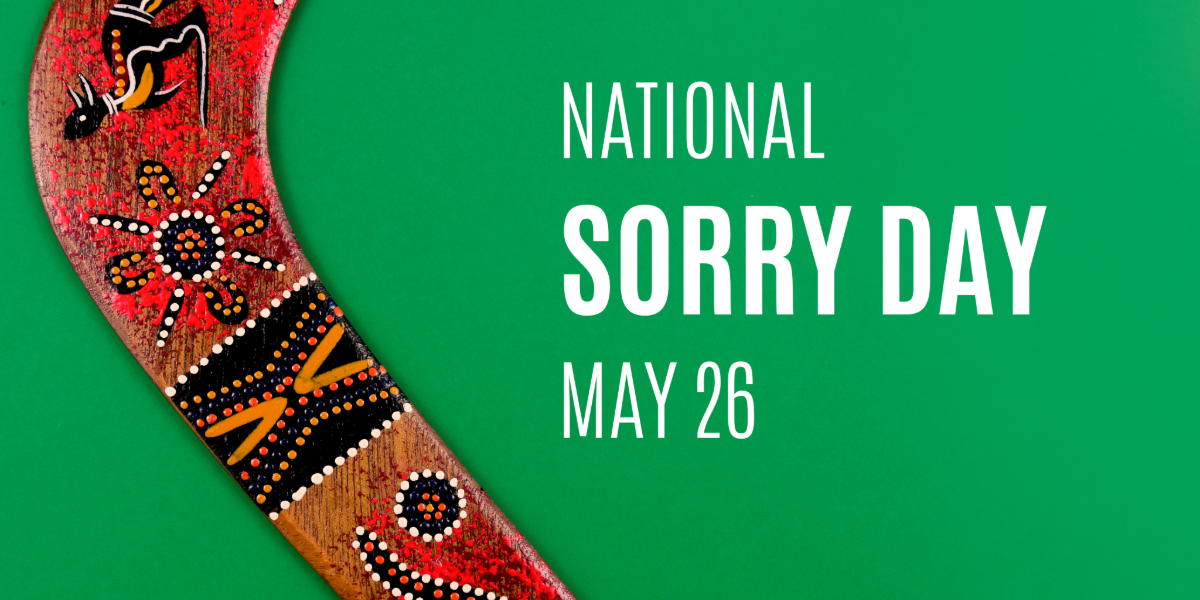Indigenous communities will gather to mark Sorry Day across the country, amid ongoing calls to implement all of the recommendations of a 27-year-old report into the Stolen Generations.
National Sorry Day events are being held on Sunday in major capital cities, including in Sydney where Coota Girls Survivors – the former residents of the Cootamundra Domestic Training Home for Aboriginal Girls – their families and descendants will meet in the Royal Botanic Gardens.
May 26 marks the 1997 tabling in federal parliament of the Bringing Them Home report, which examined the history of First Nations people who were forcibly removed from their families as part of the Stolen Generations.
It documented the experience of survivors and made 54 recommendations, some of which have not yet been implemented.
Shannan Dodson, the head of the national Aboriginal and Torres Strait Islander organisation, the Healing Foundation, said it was an important day for all Australians to reflect and learn about the impact forced removal had on survivors and their descendants.
She would also like to see all the report’s recommendations implemented, so survivors can be eligible for compensation and have easier access to documents like birth certificates.
“If you look at the recommendations, they are still completely relevant today,” she told AAP.
“The answers are there and it’s just about how we can come together, have a very systematic and holistic approach to addressing those issues.”
Sorry Day is held each year on May 26, the day before Reconciliation Week begins.
This year, Ms Dodson said the Reconciliation Week theme ‘now more than ever’ rings true for Stolen Generations survivors.
“There really is no time left, the survivors are ageing,” she said.
“What they’ve gone through was at the hands of government and police and other entities in Australia, and we have to come to terms with that truth.”
Reconciliation Week also marks the anniversary of the 1967 referendum on May 27, which allowed Indigenous people to be counted in the census, and Mabo Day on June 3, which celebrates the High Court decision overturning the principle of ‘terra nullius’ and paving the way for native title.
Reconciliation Australia board member Kenny Bedford said the week was an opportunity to have conversations about the nation’s history.
“That’s what National Reconciliation Week is all about, stimulating those conversations and broadening awareness … so that we have a better understanding of our history, the impact of colonisation, and importantly the benefit of dealing with some of those unresolved issues for the entire country,” he said.
Mr Bedford said a growing number of organisations have expressed interest in creating Reconciliation Action Plans and engaging with First Nations people, even after the failure of the referendum in October to enshrine an Indigenous voice in the constitution.
Reconciliation Victoria has seen a similar spike in demand for resources since the referendum, with chief executive Nicole Findlay saying the state’s treaty process has encouraged support for First Nations issues.
“The work we know we need to do right now is the public education piece, we have to have strength in numbers and be together very visibly,” she said.
Reconciliation Victoria co-chair Dr Emily Poelina-Hunter said she relates this year’s Reconciliation Week theme with the momentum she’s felt since October’s referendum.
“Everybody was aware of the awful racism that was very public around (the referendum),” she said.
“It’s really galvanised people … it’s now more than ever we need to really push for reconciliation.”
13YARN 13 92 76
Lifeline 13 11 14
Something going on in your part of the region you think people should know about? Send us a news tip or email newsdesk@netimes.com.au.

